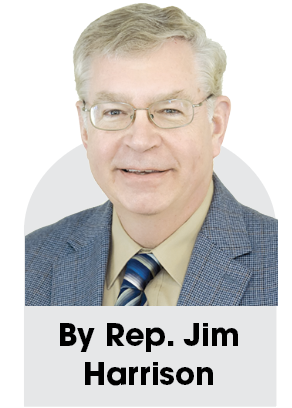 Following a veto by the governor of a bill to increase legislative pay last year, Sen. Tanya Vyhovsky of Chittenden County, along with Senators McCormack and White of Windsor County, introduce a bill to reduce the governor’s pay to equal that of a part-time legislator on a weekly basis.
Following a veto by the governor of a bill to increase legislative pay last year, Sen. Tanya Vyhovsky of Chittenden County, along with Senators McCormack and White of Windsor County, introduce a bill to reduce the governor’s pay to equal that of a part-time legislator on a weekly basis.
The governor’s salary (set by the Legislature) is currently about $200,000 annually. It does not include a governor’s mansion, like many other states. A part-time legislator earns $841 per week for the average 18-week session (approximately $15,000 annually).
While the senator’s bill is not likely to get much consideration, it’s clear she and her co-sponsors were attempting to make a point about Scott’s reluctance to double lawmakers’ pay last year.
Other issues of interest:
- House Democrats, in a press release by the speaker’s office, introduced legislation that would expand the state’s Medicaid program. While expanding access to health care is often politically popular, raising taxes is not. Vermont’s Medicaid program is the single largest expense item paid for by our General Fund revenues. Going into a tight budget year, it is unclear if the initiative was unveiled in the hope of consideration this year or in the future when state finances are more favorable?
- A tri-partisan group of lawmakers, with the support of Governor Scott, have unveiled a housing bill that would make some changes to Act 250 that backers believe will help spur more housing construction.The first bill to pass the House this session was H.27, which would enable judges to issue prevention orders when one partner is inflicting mental and emotional abuse on another.
- The House gave final approval to H.72, which sets up two safe injection sites. To date, there are only two such sites in the U.S., both of which are in New York City. In addition to providing a safe haven for illegal drug use, the legislation does not prohibit minors from accessing the sites. The bill now moves to the Senate. Proponents believe the sites will help prevent overdose deaths. The details on how the sites will operate is to be determined.
- The House Human Services Committee is reviewing a Senate passed bill, S.18, which would ban flavored tobacco products, such as menthol, in Vermont.
- The Senate Natural Resources Committee has begun looking at a proposal to require utilities to have 100% of their power from renewable sources by 2030. One report estimated the change would increase electric rates 6% above normal increases.
- The House Judiciary Committee has begun the task of reviewing public safety laws, such as repeat offenders for retail theft. It is too early to know if they will move to increase penalties for repeat offenders.
- The Vermont Judiciary plans to ask for three new judges and 10 new assistants to help with the backlog of court cases that began during the pandemic.
- The Cannabis Board is proposing to remove the cap on the potency of marijuana sold through Vermont’s regulated stores. Several health groups, including the Medical Society, oppose the change.
- The education and revenue committees have begun reviewing some of the reasons for increased education property taxes this coming year. The Chair of House Ways & Means Committee recently said in a media interview, that the biggest factor will be what the locally approved school budgets look like at Town Meeting. At the end of the day, it will be up to the voters.
Jim Harrison is the state representative for Chittenden, Killington, Mendon and Pittsfield. He can be reached at [email protected] or harrisonforvermont.com.



